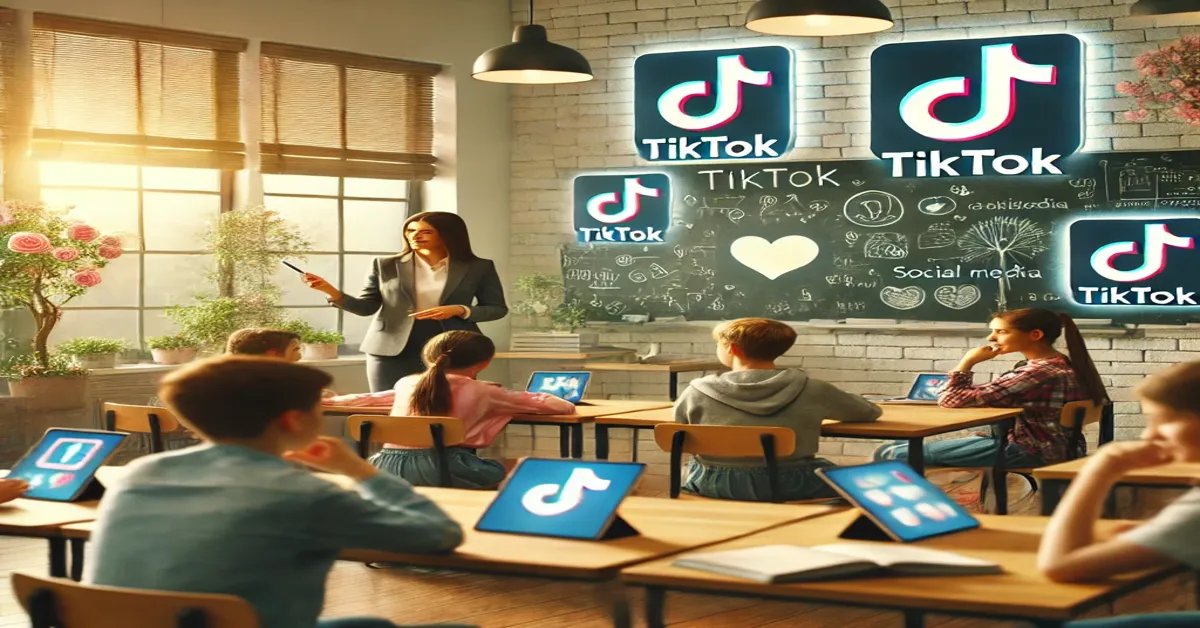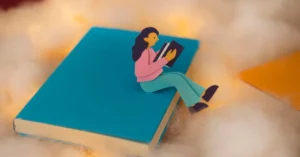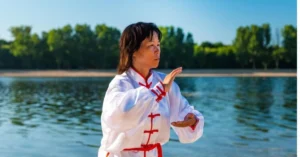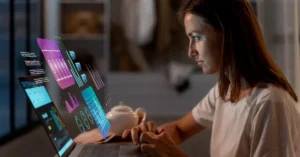TikTok is more than just a platform for viral dances and comedic skits. It’s now making waves in the world of education, particularly among middle schoolers who are reshaping classroom dynamics in unexpected ways. These young creators are consuming content and producing it, influencing their peers and even teachers.
With its short-form videos and catchy trends, TikTok has become a powerful tool for communication and expression. Middle Schoolers TikTok Teachers are harnessing this energy to connect with educators creatively. But what does this mean for our classrooms? As these trends infiltrate educational spaces, the impact on both students and teachers becomes increasingly significant.
In a landscape where social media plays an essential role in daily life, understanding how middle schoolers engage with TikTok can help us navigate the complexities of modern education. This blog will explore the evolving influence of TikTok on classroom interactions and delve into its effects on teachers facing unique challenges associated with online behavior from their students. Join us as we unravel this fascinating intersection between social media and education!
TikTok Trends in Education
TikTok trends are reshaping the educational landscape in surprising ways. Middle Schoolers TikTok Teachers are using the platform to share fun and informative content that transforms learning into an engaging experience. Quick tutorials, relatable skits, and catchy songs make complex subjects more approachable for their peers.
Classroom dynamics have changed as students bring these trends into discussions. Middle Schoolers TikTok Teachers find themselves navigating a new cultural language that’s both playful and educational. The energy of TikTok encourages creativity, prompting students to participate more actively in class activities.
Moreover, Middle Schoolers TikTok Teachers can harness this trend to enhance lessons. By integrating TikTok into their teaching strategies, educators can reach middle schoolers on a level they understand and enjoy. This connection fosters a sense of community while making education relevant in today’s digital age.
Middle Schoolers’ Influence on Classroom Dynamics
Middle Schoolers TikTok Teachersare reshaping classroom dynamics in unprecedented ways. With the rise of platforms like TikTok, their influence extends beyond mere entertainment. Students often bring trends into the classroom, affecting how they interact with peers and teachers.
This generation is more vocal and expressive than ever before. They share memes, challenges, and even educational content from TikTok that shifts traditional learning paradigms. As a result, teachers must adapt to this new landscape where engagement relies heavily on understanding these cultural references.
Moreover, middle schoolers’ tendency to create viral content can disrupt established norms within schools. Classrooms now become arenas for social experimentation as students navigate their identities through shared online experiences while influencing their environment in real-time.
Use of TikTok in Targeting Teachers
TikTok is becoming a powerful tool for Middle Schoolers TikTok Teachers, not just for entertainment but also as a platform to engage with teachers. Students often create content that highlights classroom experiences, sometimes poking fun at their educators. While this can foster camaraderie, it also raises concerns about boundaries and respect.
Teachers are increasingly finding themselves the subject of viral videos. Some portray them in humorous lights while others skew negative. This trend can lead to misunderstandings and even reputational damage for educators who might feel unfairly depicted.
Moreover, many students may underestimate the impact these videos have on their teachers’ professional lives. What seems like harmless fun could contribute to a toxic environment in schools where respect and trust should thrive. Balancing humor and professionalism is essential as both parties navigate this evolving digital landscape together.
Impact on Teachers
Middle Schoolers TikTok Teachers are increasingly feeling the weight of social media’s influence, especially with platforms like TikTok. The rapid pace at which trends change can create a challenging environment for educators who strive to stay relevant and relatable. Middle schoolers often share videos that highlight their experiences in class, some positive but many critical, leading to an unpredictable classroom dynamic.
The psychological effects on teachers cannot be overlooked. Constant exposure to online opinions may lead to anxiety and self-doubt among educators. They might find themselves second-guessing their teaching methods or struggling with feelings of inadequacy as they compare themselves to viral content creators.
Moreover, social media attacks can leave lasting scars on mental health. Teachers targeted by students’ TikTok videos may feel isolated and unsupported in their roles. This digital scrutiny not only affects individual morale but also disrupts the overall learning environment within schools.
Handling Social Media Attacks in Schools
Social media has transformed how students interact, but it also opens the door to bullying and harassment. Teachers often find themselves on the receiving end of negative comments or attacks that play out online. This digital landscape can feel overwhelming for educators who are trying to foster a positive learning environment.
Responding effectively requires clear communication strategies. Educators need training on navigating these challenges while remaining professional and empathetic. Addressing issues directly with students in a supportive way can help mitigate conflict before it escalates further.
School administrations must create robust policies around social media behavior and support systems for teachers facing these situations. Open dialogue about social media’s impact is crucial; both educators and students should understand their roles in maintaining respect within digital spaces.
Psychological Effects on Educators
The rise of TikTok among middle schoolers has woven new dynamics into the classroom, often leaving teachers feeling vulnerable. As students share their experiences online, educators can find themselves under scrutiny or even ridicule. This heightened visibility may lead to anxiety and stress for those tasked with maintaining a positive learning environment.
Additionally, constant comparison to viral teaching trends can create pressure on educators to perform at an unrealistic level. Middle Schoolers TikTok Teachers might feel they need to adapt their methods dramatically just to keep up with what’s trending on social media. This challenge can detract from their core mission of teaching effectively.
Moreover, negative portrayals or misunderstandings amplified by TikTok can contribute to feelings of isolation amongst educators. The emotional toll is significant; it affects not only classroom management but also the overall well-being of teachers dedicated to shaping young minds in this ever-evolving digital landscape.
Response from Education Authorities
Education authorities are increasingly recognizing the influence of social media on school environments. Many districts have begun to implement policies that specifically address student behavior related to platforms like TikTok. These guidelines aim to foster a safer online culture and mitigate the potential for negative interactions among students, especially towards their teachers.
In addition, some jurisdictions are developing training programs for educators. These initiatives help teachers navigate the complexities of social media dynamics in classrooms while equipping them with tools to manage online controversies effectively. By fostering communication between staff and administration, schools can create a more supportive environment.
Support systems for teachers facing harassment or negative attention from students on social media are also gaining traction. Counseling services and peer support networks offer educators necessary resources when dealing with challenges linked to their professional lives being scrutinized online.
Policies Addressing Social Media Behavior
As social media becomes a dominant force in students’ lives, education authorities are stepping up to implement policies that address responsible online behavior. These guidelines aim to create a safe environment for both students and teachers, helping mitigate the potential impact of viral trends on classroom dynamics.
Policies now emphasize digital citizenship, encouraging middle schoolers to think critically about their online presence. Schools often provide training sessions tailored for educators and students alike, focusing on respect and empathy while navigating social platforms like TikTok. This proactive approach aims to foster positive interactions among peers.
Moreover, many districts have established clear consequences for negative behaviors associated with social media misuse. By outlining specific rules regarding online conduct, schools can hold students accountable while supporting educators who may find themselves targeted by harmful content or harassment stemming from these platforms.
Support for Teachers Facing Online Harassment
Teachers facing online harassment often feel isolated and overwhelmed. Educational authorities are beginning to recognize the urgent need for support systems that can help these educators navigate the challenges of social media scrutiny. Training sessions on digital resilience and emotional wellness have emerged as vital resources.
Schools are also fostering open communication channels where teachers can voice their concerns regarding online behavior. These platforms encourage collaboration between staff, allowing educators to share experiences and coping strategies. By creating a supportive community, schools aim to alleviate feelings of distress among teachers.
Additionally, many districts are implementing strict policies against cyberbullying that protect both students and faculty. This proactive approach not only safeguards teachers but reinforces a culture of respect within educational environments. Empowering educators with robust support systems is crucial in combating the negative impact of online harassment.
Conclusion
The influence of middle schoolers on TikTok is reshaping the educational landscape in unexpected ways. As these young creators harness their platforms, they change classroom dynamics and challenge traditional teaching methods. The way educators connect with students is evolving; teachers are increasingly becoming aware of how social media trends affect their interactions.
This new digital environment presents unique challenges for teachers. With the rise of social media, educators face scrutiny from both students and parents. Balancing engagement while maintaining authority can be tough when viral trends spill into the classroom.
Education authorities are beginning to recognize these shifts. Policies aimed at addressing online behavior and supporting teachers facing harassment reflect a growing understanding of this issue’s complexity.
As we navigate this changing terrain, it’s essential to stay informed about trends that impact education today, particularly those driven by platforms like TikTok. Embracing innovative approaches may help create healthier relationships among middle schoolers, teachers, and the wider community.
READ MORE:Activate Vudu.com/Start TV: Setup Guide for Movies and Shows









